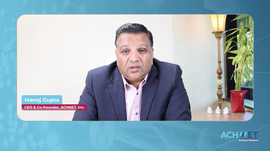IELTS Reading: Top 10 Tips
How to get a high score on the IELTS Reading. In this video, I am going to give you ten important tips that will help you succeed on the reading module of the IELTS. Prepare yourself for test day by watching this class and taking my quiz at the end. https://www.engvid.com/ielts-reading-top-10-tips/
TRANSCRIPT
Hello. My name is Emma, and in today's video, we are going to talk about the reading module of the IELTS. I'm going to tell you some of my top IELTS reading tips. So let's get started.
During the reading module of the IELTS, there will be three passages that you read, and for each passage, there are a bunch of questions you have to answer. The first tip I have for you is: don't spend too much time reading the passages. What happens to a lot of students is they read word-for-word everything. They see a word they don't know, they keep trying to understand the meaning. You don't have to understand everything to understand the passage. If you don't know a word, that's fine.
The better thing to do than to slowly read is to use skills such as skimming which means you quickly read for the main idea or scanning, meaning you look for key words or you look for specific detail. A lot of students, what they do for the IELTS is they will actually read the questions first, and then they will read the passage. And that way, they... They know what they're looking for. You don't have to do this; it's one technique. Some students find this a lot easier, other students like to read the passage first and then answer the questions. I recommend trying both out. First do the reading, then the questions, then try to read the questions first and read the passage and see what you like better, what you're more comfortable doing.
So the key thing here is: don't read slowly. It's a timed test, you have three parts you have to get through, 40 questions; it's very important that you read quickly. You can start practicing reading quickly also. There are a number of resources out there where you can actually start practicing. And time yourself when you practice, make sure you're not going over time.
Number two, similar to number one, my tip is: don't spend too long on each question. Some of the questions are difficult-they're possible, you can do well on them-but some of them, you might be reading and you might think: "Oh, I don't know what the answer is," and you might look at it, and think, and try, and try, and try. Well, the problem is if you spend too much time on a question, there are 40 questions and the one hour limit for the test, it goes by very quickly. So you can spend too much time on each question. So what I recommend is read a question, try to figure out the answer. If you don't know it, you can put a star beside it and come back after. Don't spend too long on any question. You can also take a guess, move on, and come back later.
My third tip: spend less time on earlier questions. For the reading module, the... Like I said, there are three passages. The first passage is the easiest, then the second passage, and then the third question. If you spend all your time on the first passage, you're not going to have time to do the second and the third. And, like I said, the first one is easier. So a good idea is to spend less time on the first passage, maybe about 17 minutes, then the second passage maybe spend about 20 minutes, and the third passage maybe 23 minutes. You don't have to follow this exactly, but the main idea is spend less time on part one, more time on part three because part three is harder.
My fourth point is: make sure you have enough time to transfer your answers. They will have an answer sheet and you're supposed to write your answers on it. It's very important to leave yourself time to transfer your answers from your test paper to the answer sheet. A lot of students, they work through the booklet and then they realize there's no time to transfer their answers, so make sure you leave time for this.
This video originally appeared here.

.jpg)


